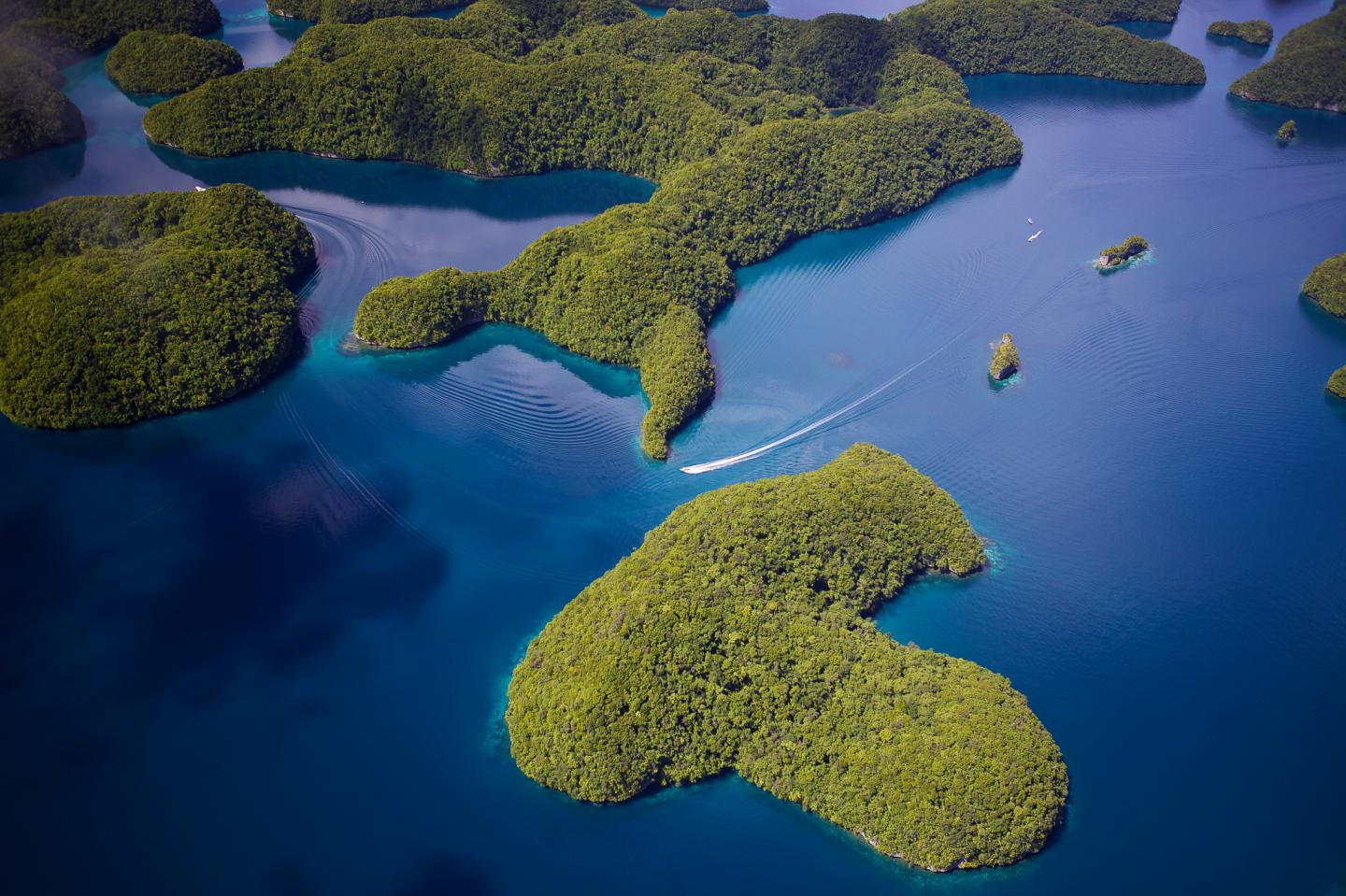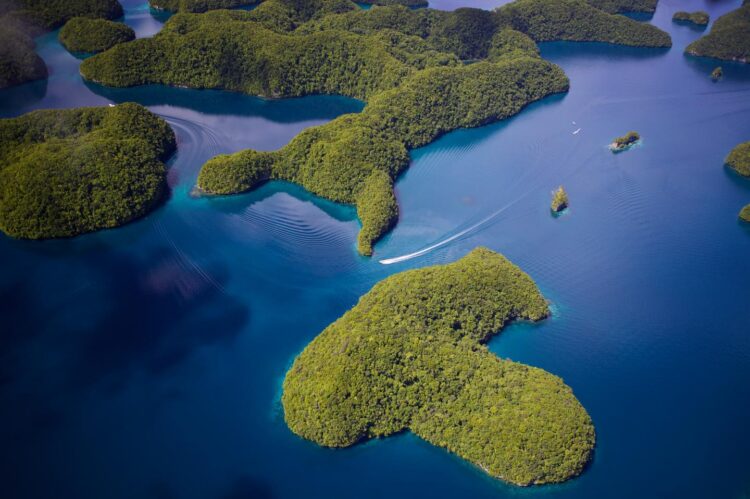Using data collected on the Khaled bin Sultan Living Oceans Foundation’s Global Reef Expedition, scientists identify which natural and anthropogenic factors are most likely to lead to healthy reefs

Credit: © Keith A. Ellenbogen/iLCP
Scientists have developed a new way to model and map the health of coral reef ecosystems using data collected on the Khaled bin Sultan Living Oceans Foundation’s Global Reef Expedition. This innovative method, presented today at the International Coral Reef Symposium (ICRS), can determine which natural and anthropogenic factors are most likely to lead to persistently vibrant coral and fish communities. Their findings can help scientists identify the reefs most likely to survive in a changing world.
The new models are a first step in being able to produce maps of global coral reef resilience.
To create these models, scientist Anna Bakker needed a lot of data on coral reefs from many countries across the South Pacific. She found what she needed in the data collected on the Khaled bin Sultan Living Oceans Foundation’s (KSLOF’s) Global Reef Expedition–a 10-year research mission that circumnavigated the globe to study the health and resiliency of coral reefs in an attempt to address the coral reef crisis. This expedition was an ambitious undertaking, involving more than 200 scientists from around the world who worked together with local experts to survey more than 1,000 reefs in 16 countries. In addition to a treasure-trove of standardized and geo-referenced data on coral cover, fish biomass, and algae, the expedition produced over 65,000 square kilometers of high-resolution marine habitat maps that KSLOF verified with data collected in the field.
“This research would not have been possible without the massive amount of field data collected on the Global Reef Expedition,” said Anna Bakker, a Ph.D. student at the University of Miami’s Rosenstiel School of Marine and Atmospheric Science and the lead author of the study. “The sheer amount of benthic and fish observations collected in the field from around the world enabled us to take a holistic look at indicators of coral reef health–such as coral cover or fish biomass–and figure out what drives one coral reef to be healthier than another.”
Bakker pooled all of the data collected in the South Pacific–from Palau, the Solomon Islands, New Caledonia, Fiji, Tonga, the Cook Islands, and French Polynesia–into her models. She correlated fish biomass as well as coral and algal cover with dozens of natural and anthropogenic factors such as wave energy, degree heating weeks, human density, and protected areas to determine which factors were driving differences observed in the marine environment.
She found that there were only a few major factors that drove variations in the health of the coral reef community. Fish biomass was primarily driven by biophysical drivers such as water temperature. In contrast, the algal cover was driven mainly by anthropogenic factors, with significantly less macroalgae in places with more terrestrial and marine protected areas. Coral cover was more complicated and correlated with many natural and anthropogenic factors, chiefly human population, development, and water temperature.
This short list of the most important drivers can help conservationists prioritize what factors need to be addressed to protect coral reefs and identify which reefs are more likely to thrive in a rapidly changing world.
“Anna’s work is an important step in the scaling of local measures of reef resilience to a global appraisal,” said Sam Purkis, KSLOF’s Chief Scientist as well as Professor and Chair of the Department of Marine Geosciences at the University of Miami’s Rosenstiel School of Marine and Atmospheric Science.
The model results presented today covered coral reefs in the South Pacific, but future research Bakker intends to conduct will use the same modeling approach to identify the primary drivers of the health of coral reef ecosystems and the status of their fish and coral communities, and model and map the potential resilience of coral reefs in the Indian and Pacific Oceans and their associated seas.
These coral reef resiliency maps will provide marine managers with critical information on where to focus their limited time and resources to protect coral reefs. At the same time, the analysis of the primary socio-environmental factors that influence the health of coral and reef fish communities will provide conservationists with insight into what measures they can use to preserve these reefs before it is too late.
“When we embarked on the Global Reef Expedition in 2006, we had no idea our data could be used in this way. The technology to develop and run these kinds of models did not exist yet. But we knew we were collecting valuable data that needed to stand the test of time,” said Alexandra Dempsey, the Director of Science Management at KSLOF and one of the authors of today’s research presentation. “The Global Reef Expedition mission gave us the chance to study some of the most remote and pristine coral reefs in the world. Now, it is providing the conservation community with the information we need to identify the reefs that can be saved before it is too late to save them. Let’s not waste this opportunity.”
###
The Study:
“Modeling Local-to-Regional Coral Reef Status in the South Pacific” was presented by Anna Bakker at the International Coral Reef Symposium (ICRS) on July 21, 2021. The study’s authors include Sam Purkis of the Khaled bin Sultan Living Oceans Foundation and the Rosenstiel School of Marine and Atmospheric Science (RSMAS) at the University of Miami, and Alexandra Dempsey from the Khaled bin Sultan Living Oceans Foundation.
Khaled bin Sultan Living Oceans Foundation:
The Khaled bin Sultan Living Oceans Foundation is a US-based nonprofit environmental organization that protects and restores the world’s oceans through scientific research, outreach, and education. As part of its commitment to Science Without Borders®, the Living Oceans Foundation provides data and information to organizations, governments, scientists, and local communities so that they can use the latest science to work toward sustainable ocean protection.
http://www.
Media Contact
Liz Thompson
[email protected]
Original Source
https:/





